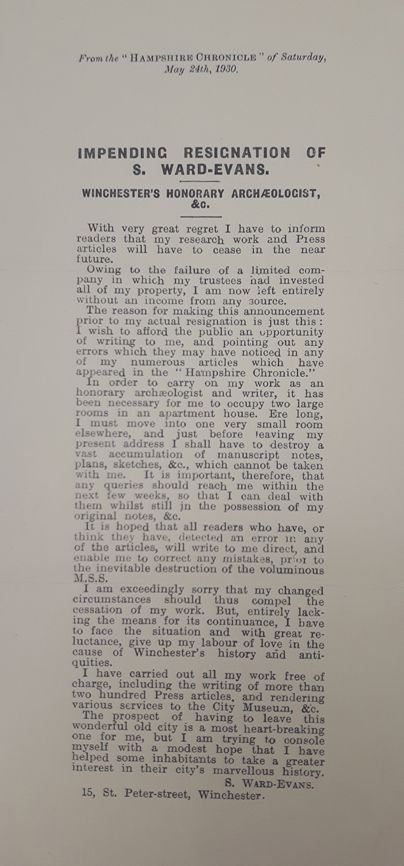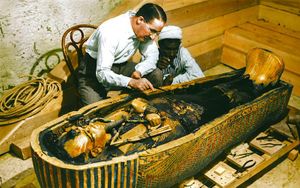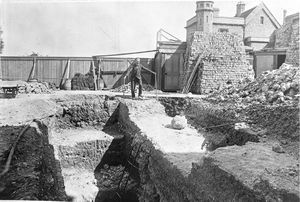For nearly 17 years, Sydney Ward-Evans was the unofficial city archaeologist for Winchester. In these four posts from Hampshire Cultural Trust's Curatorial Liaison Manager Ross Turle, find out how he went from Samuel Ward Evans, prosperous Surrey hardware store manager, to Sydney Ward-Evans, impoverished archaeologist.
After the war Samuel needed to recuperate away from Surrey. His travels brought him to Winchester, but financial ruin lead him to re-assess his future.
Around the time of the his mother’s death in 1923, Ward-Evans broke away from the business and was able to continue his convalescence under a personal nurse for at least a year. It was whilst still under the care of a nurse that Ward-Evans first came to Winchester in 1926 to visit the Roman villa that had been unearthed at Twyford. A ‘chance wonderful discovery’ made by Ward-Evans led to interviews with the press and within three months of being in the city he was asked to present a lecture on his discovery at St Thomas’ Hall. In Ward-Evans words he had established himself as ‘the archaeologist for whom Winchester had been long wishing’. The chance wonderful discovery appears to have been a Roman street 4 metres below The Broadway.
When exactly Samuel Ward Evans became Sydney Ward-Evans we do not know, although as early as 1909 he is recorded as Sydney on a list of electors in Carshalton. But it was as Sydney Ward-Evans that he set about recording archaeological finds in Winchester. He did not excavate the finds himself, but would observe ground works at construction sites and persuaded the workmen or land owners to give him any finds that were discovered for him to record. This was over 60 years before a legal provision was made for the monitoring and recording of archaeology. Many of those finds were gifted to Winchester City Museum; and some sold to them.
For four years Ward-Evans kept an eye on work going on in Winchester, recording what he found and reporting on it in the Hampshire Chronicle. But on the 24 May 1930, the Chronicle published an open letter by Ward-Evans in which he reported that he would no longer be able to pursue his role as city archaeologist due to financial reasons. This left Ward-Evans without an income and led him to start selling belongings and to move into single room lodgings. Whether he really intended to stop or was soliciting re-numeration for his work is not clear. However, if he was looking for payment it seemed to have worked, for in the same year Hampshire County Council appointed him to carry out a watching brief on the Castle Yard construction work on the site of Winchester Castle. A public subscription was also set up by the Hampshire Chronicle, which had raised £61 (around £4000 today) by the 28 June 1930.

If you have enjoyed Culture on Call and you are able to make a donation, any support you can give will help us keep people connected.



